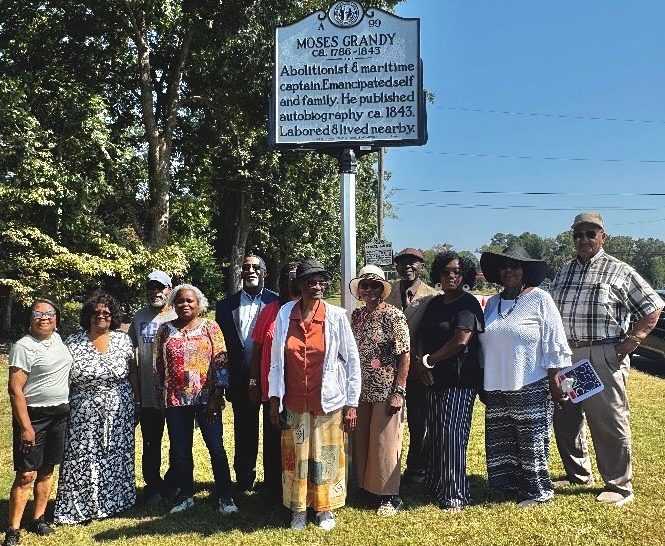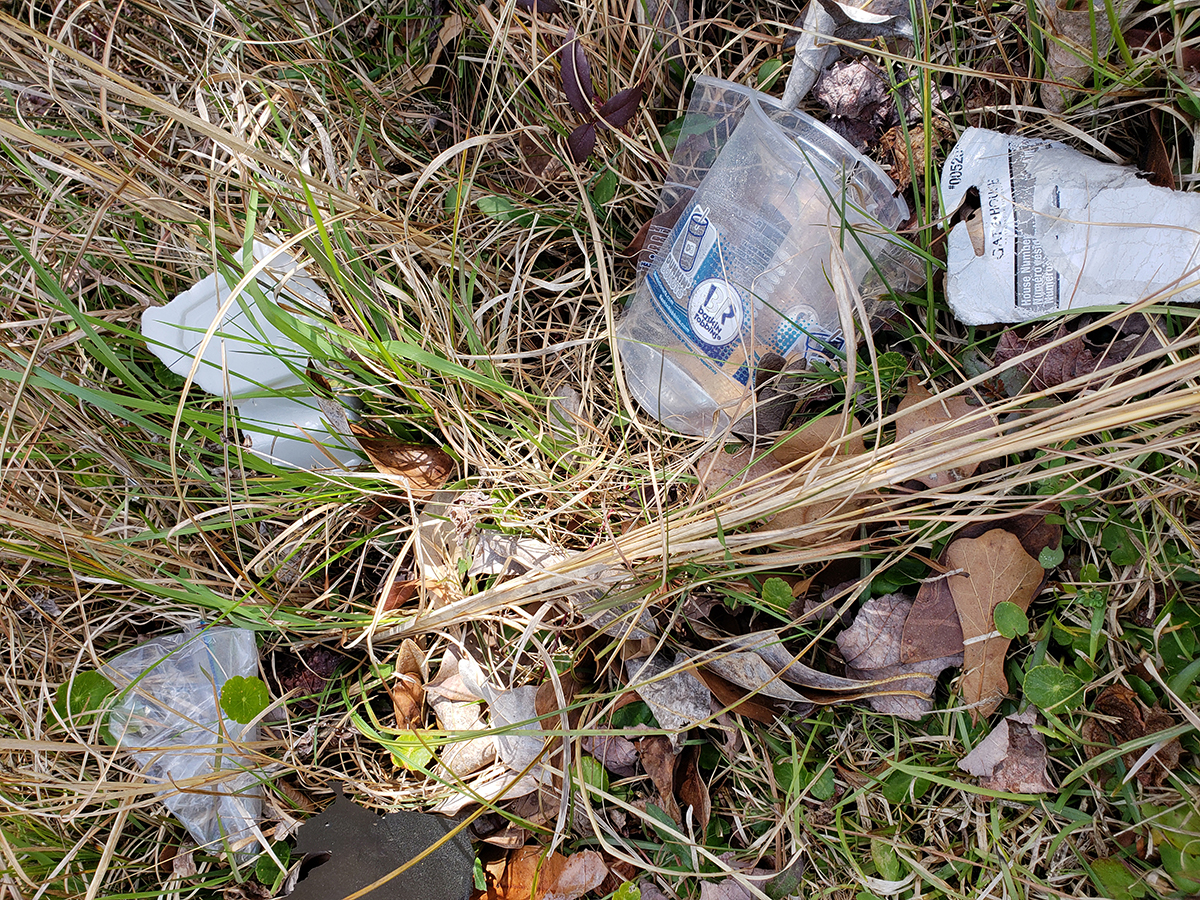
RALEIGH — Even though COVID-19 shutdowns in 2020 caused a dramatic decrease in traffic on North Carolina roads, the North Carolina Department of Transportation reports collecting record levels of roadside litter, with 6.3 million pounds as of late May picked up by contractors and thousands of volunteers.
NCDOT this year has revitalized its litter programs and stepped up public outreach about prevention and enforcement.
Supporter Spotlight
“We are on track to pick up more litter in 2021 than in any year previous,” state Transportation Secretary Eric Boyette said in a May 19 press release. “But to truly solve this problem, North Carolina must begin dealing with litter proactively. Secure your load, don’t throw trash out the window and do your part to make sure others know this too.”

But veteran litter-pickers worry that dedicated volunteers are burning out and there has to be a more comprehensive strategy for litter prevention and management.
“We’ve lost a lot of steam with people wanting to do pickups,” said Michael Murdoch, a Carteret County resident and anti-littering activist. “People I volunteer with don’t want to keep doing these pickups. It’s just demoralizing to see the amount of litter.”
In 2019, NCDOT spent $21,665,454 to remove 10.5 million pounds of roadside litter along the state highway system, which totals about 80,000 miles. With budget and staff cuts, as well as the number of pickups, only about 6 million pounds were collected in 2020 at a cost of $11,180,318.
Perhaps unsurprisingly, it’s against state law to litter in North Carolina. Intentional littering of less than 15 pounds of trash can result in a fine of $250 to $1,000 and up to 24 hours of community service. For unintentional offenses, it’s $100 and 12 hours, respectively. The law also requires loads on vehicles to be properly secured.
Supporter Spotlight
But the ever-growing volume of trash evident along highways and roads seems to belie the effectiveness of the law.
Other persistent sources of litter, such as filled trash cans being blown over by the wind, don’t seem to have solutions. It’s unclear who should be required to retrieve the trash that blows into streets and yards. And overfilled trash receptacles and bagged garbage piled beside them are commonly seen in many communities, with no apparent consequence.
Murdoch, 69, a co-founder of the Croatan group of the Sierra Club, has been picking up litter for decades, starting back when it was dominated by cans and bottles instead of the “overwhelming” amount of plastic today.
“I’ve done 50 cleanups over the years, maybe more,” he said in a recent interview. “I can’t see where there’s any enforcement.”
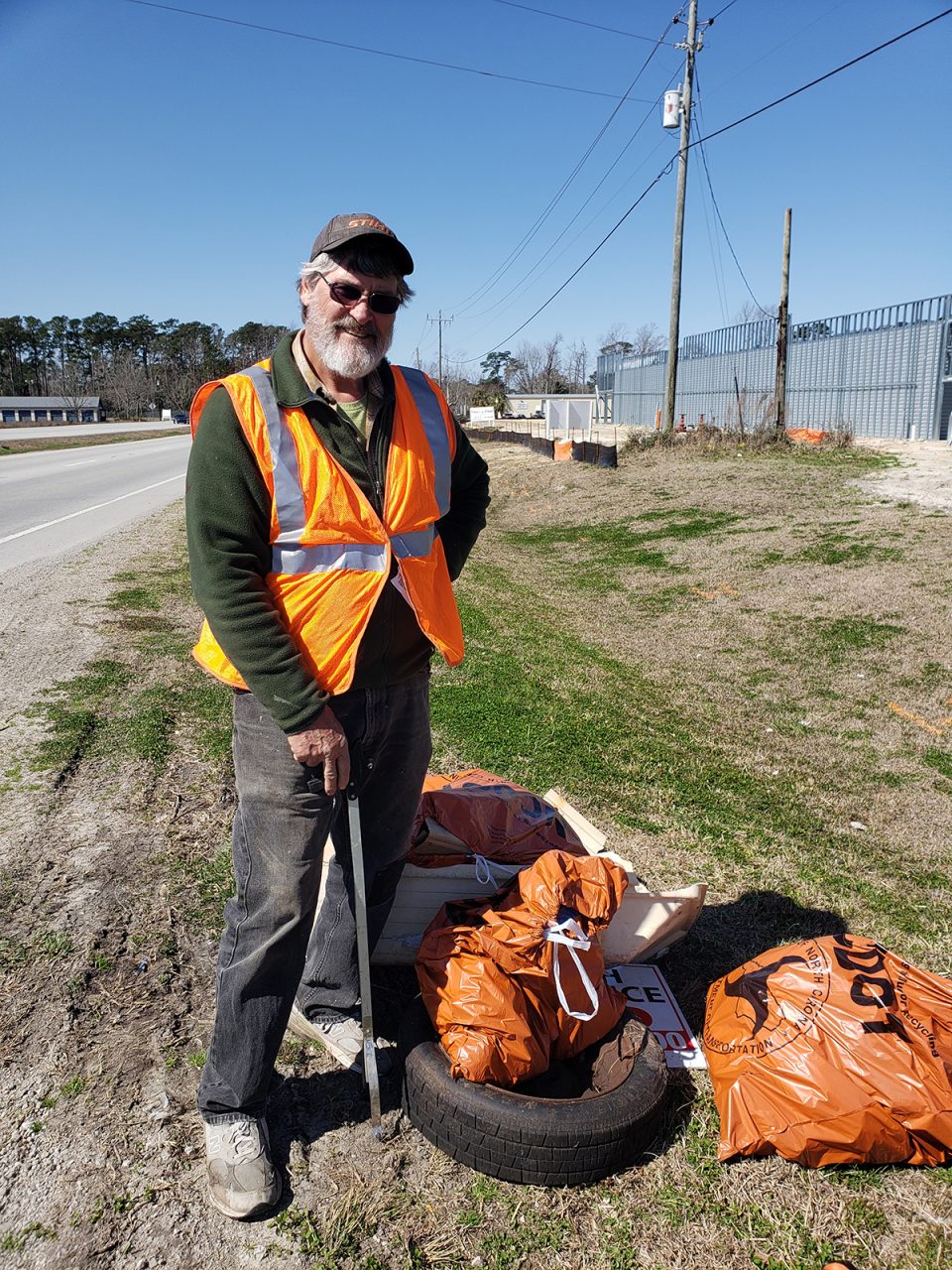
Judging from what’s on the sides of roads, people are tossing out of their vehicles fast-food waste, cigarette butts, beer bottles, diapers and masks. And who hasn’t seen trash blowing from the bed of a pickup truck, or worse, a garbage truck?
“The bottom line is law enforcement, they’re not seeing it,” Murdoch said. “They’re not charging, and they’re not convicting.”
According to the state interagency report on litter programs released in February, the total number of littering charges issued in 2020 by all law enforcement agencies was 2,726. Of those, the number of convictions totaled 807. In comparison, in 2018 the charges totaled 3,028 and convictions totaled 948. The state Highway Patrol issued 790 litter charges in 2015, but only 481 in 2019.
Whether littering is the result of laziness or carelessness, Murdoch believes that better enforcement combined with more education will make people more mindful of the consequences.
Ultimately, littering needs to become socially unacceptable and shunned behavior, similar to the way smoking in public evolved from being acceptable to tolerated and now increasingly viewed as thoughtless or selfish.
As an example, Murdoch recalled sitting on his bicycle at a traffic stop, and someone threw a Styrofoam cup toward him.
“She said, ‘I’m sorry. I didn’t realize you were there,’” he recounted, referring to the driver. And then she sped off, apparently embarrassed not by her littering, but by Murdoch witnessing it.
“But I don’t want to be in the enforcement business,” he said.
North Carolina encourages people who observe littering from vehicles to report it through the Swat-A-Litterbug program. Each report is followed up with a letter signed by the state Highway Patrol colonel that is sent to the registered owner of the vehicle with information about littering being against the law, and potential penalties.
The program does not issue warnings or citations.
There were 3,239 letters sent in 2020, but the department typically averages 8,000 letters a year, Department of Transportation Communications Officer Harris Kay said in an email.
“This number was lower in 2020, due to budgetary cutbacks,” Kay said. “However, those issues should hopefully not affect the program this year.”
Kay said that a new app to report littering was released this year. It can be downloaded from ncdot.gov/litter.
But Murdoch said he doesn’t see the value in the anonymous program, calling it “useless.”
“They say, ‘Well, it’s better than nothing,’” he said. “I’m not sure it is.”
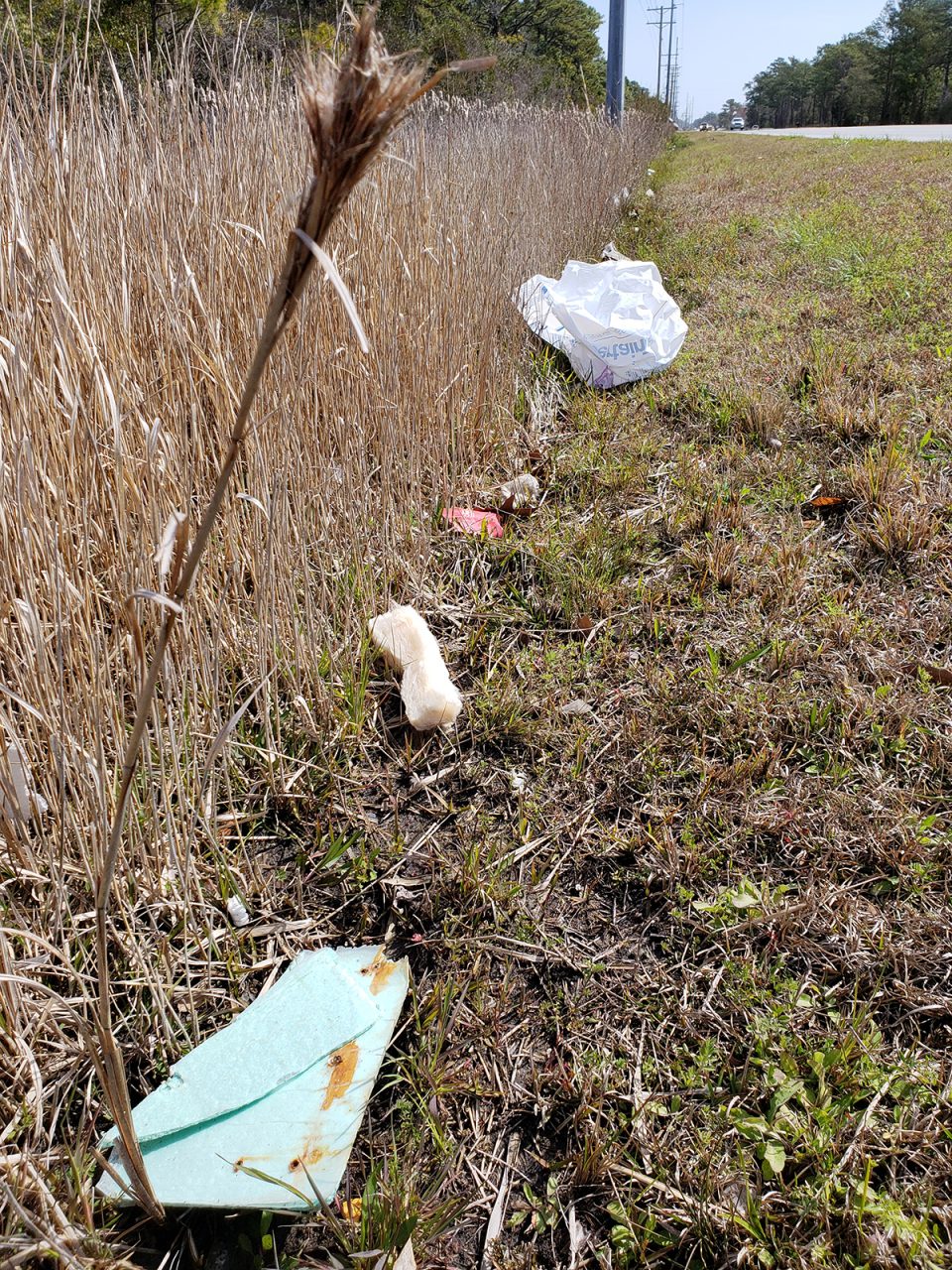
Proposed legislation, House Bill 100, The Highway Cleanup Act of 2021, would include studying whether to stiffen litter penalties, as well as the feasibility of restarting a program similar to the inmate litter crews that used to clean roadsides. It also would look at increasing educational programs and incentivizing state employees to participate in litter pickups.
The bill was referred in April to the Committee on Appropriations.
Paul Schernitzki, a Maysville resident who operates an anti-litter educational effort, The Litter Pirate, is not impressed with the bill, which he characterized as “rubbish,” at least as it’s written.
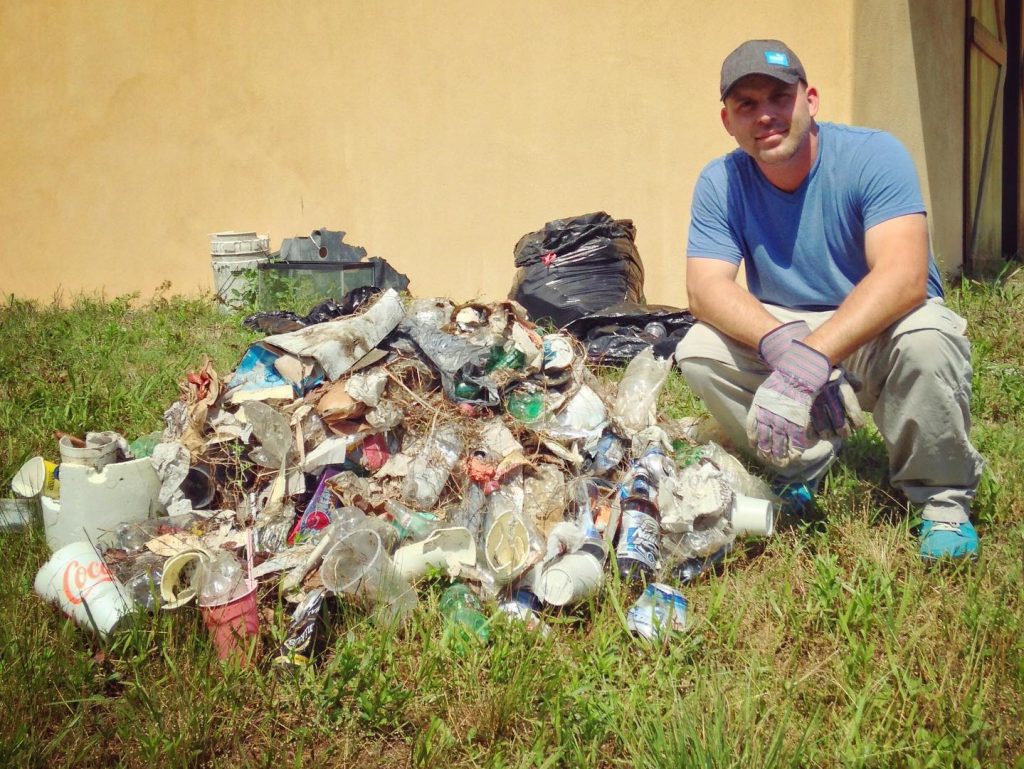
“It’s more greenwashing,” he said in an email, using a term to describe something that is presented inaccurately as environmentally friendly.
Steps proposed in the bill, such as doubling fines or increasing funds for marketing efforts, he said, “fight litter, not littering.” Instead, he said there needs to be better data about litter — where is it worse? why? is it seasonal? who is likely to litter?
“Why not give the support local sheriff and police departments need to enforce litter laws?” he said. “Why not support NCDOT in in-person, anti-litter education programs? What is the goal of the bill (and the money)? Is the goal attainable? Is the goal measurable?”
But Schernitzki gives NCDOT credit for a notable improvement in its anti-littering public relations campaign. And he agrees that contractors’ mowing schedules should be coordinated with litter removal — as the proposed legislation would require — to prevent trash being shredded into pieces by mowers.
Importantly, more innovation needs to happen, he said, because littering is only getting worse. For instance, a group called Palmetto Pride in South Carolina is using litter officers and litter cameras to catch litterers.
Recycling is not the answer, he said. The bottom line is that there has to be less trash.
“The message of anti-littering programs should be: Use less single-use plastic,” Schernitzki said.
Despite the impatience with the litter programs expressed by some dedicated volunteers such as Schernitzki, the state programs — including Adopt-A-Highway and seasonal litter sweeps — are attracting more volunteers than ever, said NCDOT Roadside Environmental Engineer David Harris.
“I just think everybody is tired of seeing the state the way it is, and so people all over the state came out,” he said in an interview, referring to the increased roadside litter in 2020. Public outreach that provided details about the litter sweeps and the safety protocols in place were a positive factor in the turnout, he added.
Harris, who has worked for the department for more than 28 years, said that litter along the roads has increased in conjunction with the state’s population growth and increased tourism and construction. Litter tends to be concentrated in the vicinity of landfills, and in areas around fast-food restaurants. Still, there are people who dump their household garbage along roads, no matter what proper disposal areas are nearby.
Overall, Harris said he thinks there is something to the theory that people are less likely to litter when there’s little or no litter in an area. It creates a positive perception.
“If a place doesn’t look clean and neat, people don’t care,” he said. “And I sometimes feel like what you see is, as things become more littered, people are less inclined to take the steps necessary to keep from littering.”
Harris said that with consistent funding for litter cleanups, he believes that not littering can become an “institutionalized” social norm, like it has for recycling.
“And when you see somebody throw something out (the window),” he said, “I think the population would take care of that situation rapidly.”
Lee Nettles, executive director of the Outer Banks Visitors Bureau and the board president of the North Carolina Travel Industry Association, said that littering is definitely a concern that is raised in tourism circles, but state tourism budgets generally don’t provide funding for anti-littering efforts. Although tourism and transportation intersect somewhat, litter pickup along roads is viewed as NCDOT’s purview.

The state tourism office is developing an initiative with Outdoor NC, he said, called “Leave No Trace” that encourages visitors at outdoor recreational sites to take their trash with them.
On the Outer Banks, he said, the visitors bureau has provided funds for a glass crusher and oyster recycling, and it’s “conceivable” that if needed, some funds could go toward litter sweeps, since clean beaches and landscapes are such an important part of the barrier islands’ “brand.”
But to date, he said, the volunteer efforts have been working well.
“I think that county — and the villages and towns — do a good job keeping ourselves presentable,” Nettles said.
Murdoch said that picking up litter over and over again is not the answer.
“That’s getting us nowhere,” he said. “We’re not cleaning it up. We’re not coming close to stopping it.”
Plastics are destroying our ecosystems, he said, and it’s a problem that the industry must address.
“We’ve got a product out there that’s being produced in the millions of tons,” Murdoch said. “We have to figure out ways to not use it as much, and companies that make these products have to be responsible.”






